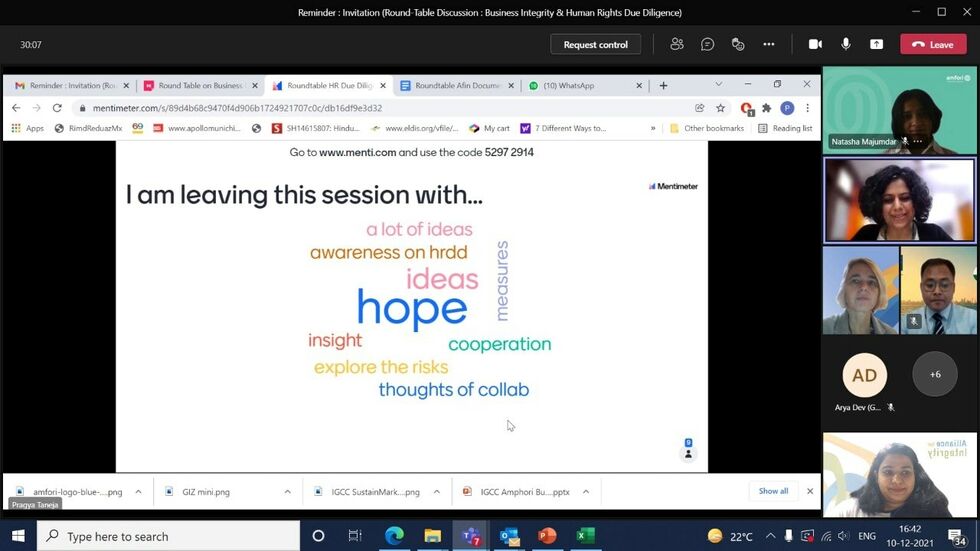Business Integrity and Human Rights Due Diligence in India
10.12.2021
India, online

On the occasion of Human Rights Day, Alliance for Integrity India organised a round-table discussion on Business Integrity & Human Rights Due Diligence. There has been a recent shift in the global legislative framework towards promoting human rights due diligence in supply chains. While some European countries have already put legislation in place or are in the process of doing so, the European Union has a resolution pending. This change would eventually impact small and medium-sized enterprises in in India which are part of or intend to be part of the global supply chain.
Alliance for Integrity put together this roundtable with key stakeholders to discuss how they can come together to support SMEs to build their capacity and explore synergies. The organisations that were part of the roundtable were Coca-Cola, International Labour Organization (ILO), World Benchmarking Alliance, United Nations Development Programme (UNDP) India, Indo-German Chamber of Commerce, Accenture, Business Scouts India and Responsible MICA Initiative.
Susanne Friedrich, Director of Alliance for Integrity opened the discussion with an introduction into the initiative, its development over the years, mission and driving force. During the session UNDP India, Coca-Cola and IGCC-Amfori-Business Scouts presented the work that they have already initiated on the supporting business integrity. UNDP has developed a regional toolkit for the assessment of the human rights' due diligence compliance, whereas Coca-Cola has done extensive work on the implementation of human rights due diligence and has a designated department for ensuring and promoting human rights. IGCC-Amfori-Business Scouts have developed a training module for creating awareness around the new German supply chain law.
This was followed by more focused brainstorming in breakout rooms to discuss the opportunities and challenges faced by small and medium-sized enterprises (SMEs) and their association with the global need to work more on human rights due diligence. Participants also discussed the potential of collective action and their interests in expanding collaboration with governments and multinationals as well as suppliers and civil society organisations faced by human rights violations. They mutually expressed interest in working with the government to drive the translation of the National Action Plan into a finalised version for guidelines.
Organisations proposed various forward actions for consideration, however these are not definite, but provide a starting point for the forum. The participating organisations agreed on holding such discussions periodically as concrete ideas would help avoid nebulous discussions and help drive convergence. They looked keen on discussing industries that are considered high exposure risk for human rights violations and risk assessment analysis in the forthcoming meetings. As a follow up, individual sessions with a lighter format will be held to share experiences and contribute to preparing a list of options.
Author: Seema Choudhary





